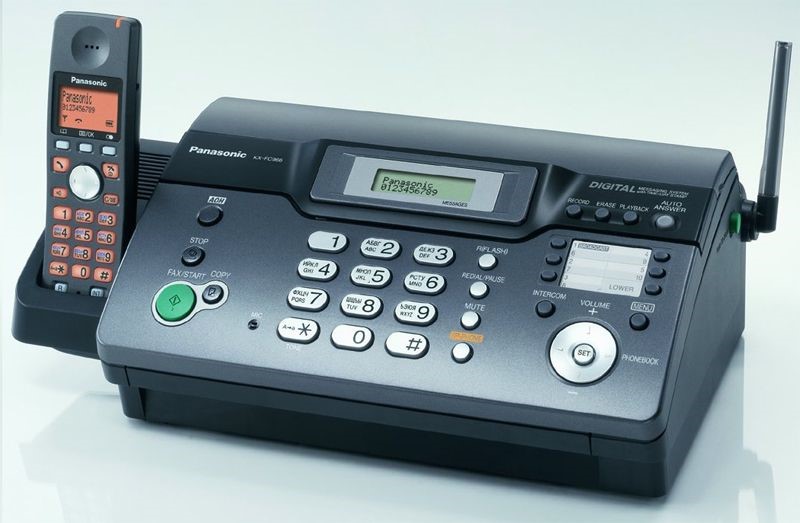Government regulations and standards have a significant impact on how businesses globally secure and manage information. Whether it’s in physical or computerized structure, data is predominant and successfully getting, keeping up with, trading, and evaluating it for consistence can be perplexing. In simpler terms, the stakes for fax security are escalating due to government regulations mandating organizations to adhere to specific policies, specifications, standards, or laws. As a result, many organizations are adopting enterprise-grade digital fax solutions to address information exchange policies and procedures and fulfill compliance requirements.
Benefits of Using a Fax for Business
Usually, everyone talks about a fax as a fax machine, but there is something more. You can fax from an iPhone. Regarding information privacy, designing, and security, the fax application is not the slightest bit second rate compared to a fax machine. It even surpasses it, as it offers data encryption and password protection. All you need to do is download this fax machine app from the store and your iPhone is ready to completely replace your fax machine. This is the main advantage of faxing from a telephone, even though it is in no way inferior in functionality or other parameters to a fax machine. All the benefits listed below apply to landline fax, which means they apply to digital fax, but the latter has even more advantages.
#1 Regulatory Compliance
Regulatory compliance is an unavoidable reality for businesses, as new government regulations and standards are constantly introduced. The impact of regulatory change is widespread, with organizations worldwide having to adapt to new mandates in every region. Industries most affected include financial services, healthcare, legal, and government.
The corporate landscape is characterized by ever-changing compliance requirements. Tighter legislative regulations, such as Sarbanes-Oxley in the United States and data protection acts in Europe, have been imposed in response to corporate ethics violations and scandals. Even private entities, such as the Payment Card Industry Security Council, have established their compliance standards.
Constant evaluation of file transfer protocols is necessary to ensure compliance with these regulations. Faxing, as a protected technique for data trade, continues internationally and across businesses. It stays trusted because of its protected record move, requiring direct network between gadgets before the transmission of information. Unlike other secure exchange technologies, faxing does not require complex encryption keys or passwords, making it widely adopted.
#2 Security
Fax software and services offer the most widely used means of secure information exchange. This is because they enhance security by replacing non secure standalone fax machines and providing a centralized hub for document delivery and storage. Moreover, certain fax arrangements furnish an additional layer of assurance with scrambled conveyance choices.These features effectively reduce the risk of confidential information landing in the wrong hands. Furthermore, documents are delivered to recipients in tamper-resistant formats, safeguarding against corruption and leveraging the established security systems of your network.
#3 Reliability
To successfully send a fax, you only need a fax machine and the recipient’s fax number. Unlike email, where there’s a risk that the recipient may not have the necessary software or technical expertise to open and print a document, fax machines eliminate this concern. Moreover, fax machines are not susceptible to viruses or other computer malfunctions. In terms of reliability, faxes have an advantage over postal messages as they are not prone to damage or loss. When faxed to the correct number, your recipient will receive the fax immediately.
#4 Quality
Fax transmissions have significantly lower quality compared to conventional printers. The transmitted quality is not consistently maintained upon receiving, resulting in the potential loss of details from the original document.
#5 Multitasking
Fax machines need performing multiple tasks capacities, forestalling concurrent sending and getting of faxes. Additionally, they are unable to send multiple faxes concurrently. For instance, if a fax document needs to be sent to 20 recipients, each recipient must be processed individually.
Conclusion
Global enterprises will continue to face the challenge of maintaining regulatory compliance. Non-compliance can result in severe consequences, both financially and in terms of organizational reputation. Consequently, organizations need to develop effective strategies that prioritize the secure and monitored exchange of information. Enterprise fax software, along with its cloud-based capabilities, offers secure fax transmission that enhances data security and minimizes compliance risks. As new regulations emerge, it is crucial for businesses to thoroughly review their information exchange policies and procedures. The importance of fax in supporting security and compliance cannot be overstated.


